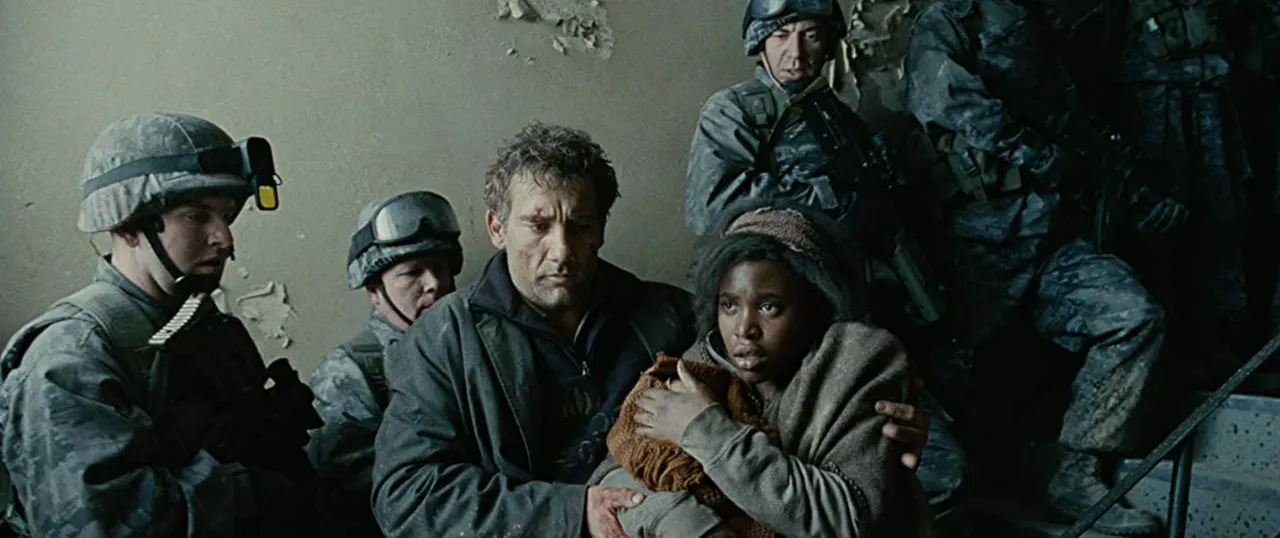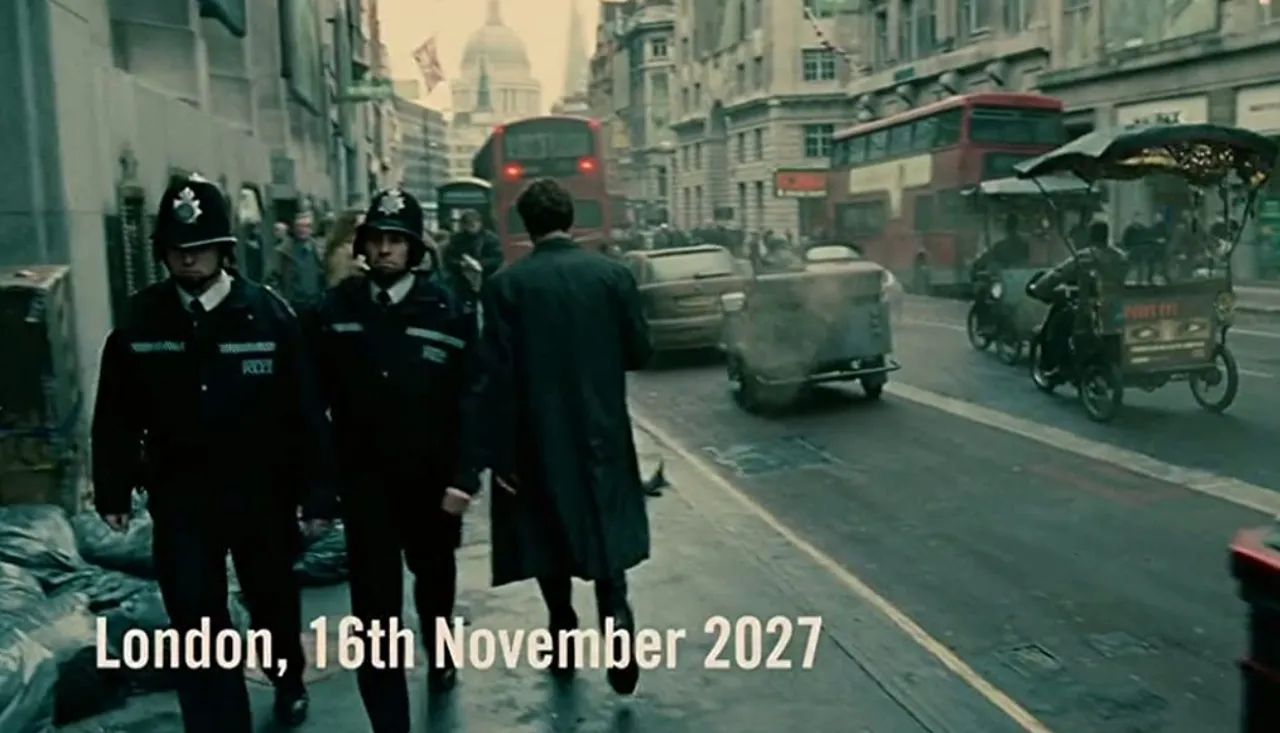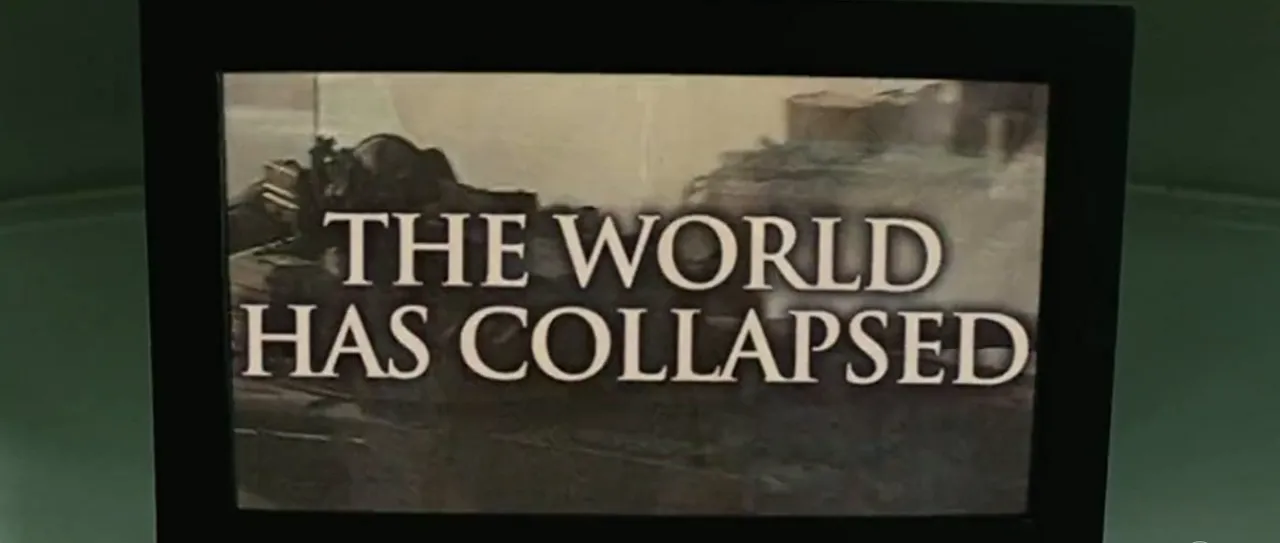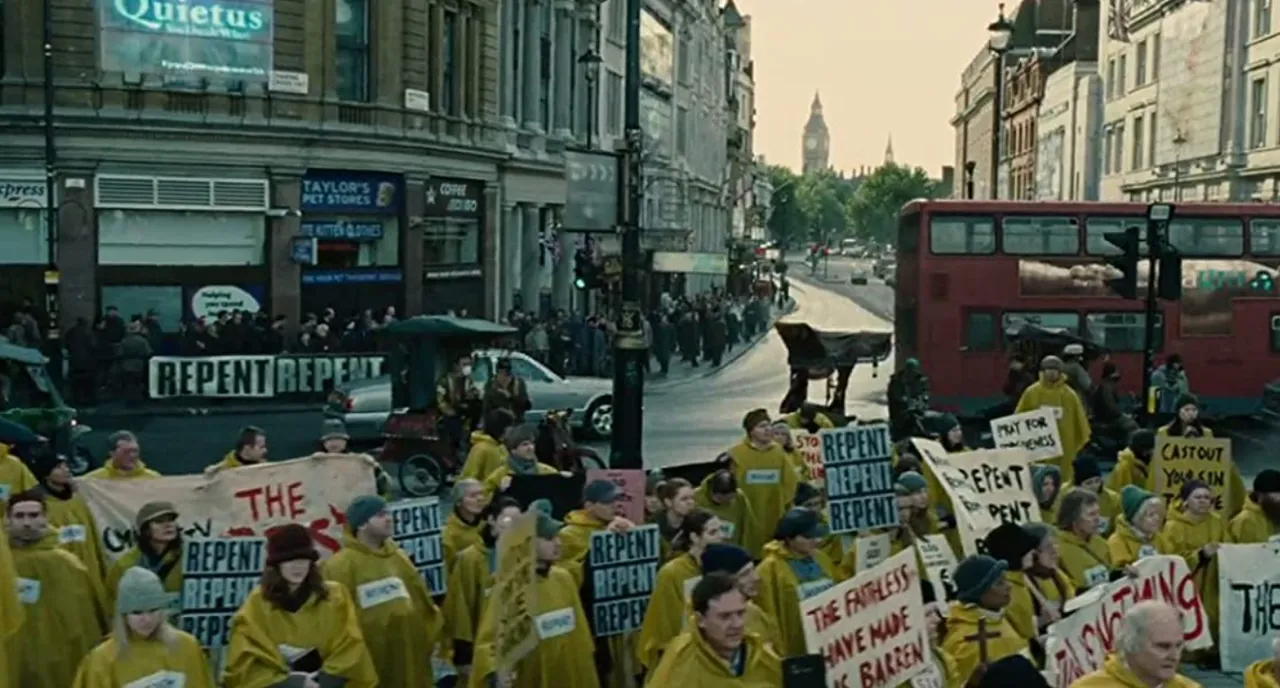“As the sound of the playgrounds faded, the despair set in. Very odd, what happens in a world without children's voices.”
Quote from Children of Men (2006)
“Some say we must learn to curb our obsession with growth, to become less consumer-obsessed, to learn to manage with a smaller population. That sounds very attractive. But who will buy the stuff you sell? Who will pay for your healthcare and pension when you get old?
Because soon, humanity will be a lot smaller and older than it is today.”
Quote from article from weforum.org
The 2006 dystopian film “Children of Men” has remained one of my favourite films since I first saw it upon its release. It’s an expertly well-made film by perhaps one of the greatest living auteurs (Alfonso Cuarón), with some stunning action sequences and immersive mise-en-scene and jaw-dropping cinematography by Emmanuel “Chivo” Lubezki. Aside from being brilliantly shot, directed and featuring some superb acting from Clive Owen (yes, you read that correctly), the film’s narrative and themes have become more and more relevant since 2006.

The film is set in the not too distant future (the year 2027). It’s a bleak future where the last human-being was born over 18 years ago. Women simply can’t have children. There’s no explanation as to why there’s a global infertility crisis. Whatever has caused the soon-to-be mass extinction of the human race doesn’t really need to be explained. What matters is the effect it’s had on the world and the human spirit as a whole. All sense of law and order has all collapsed with the U.K. essentially becoming a totalitarian police state. People have become divided in terms of social, political and economic class. While the working class struggle to survive, the ruling elite live a life of luxury and excess. It’s very much like our society now, but everything is far more grey and miserable.
Clive Owen plays civil servant Theo Faron, who must help refugee Kee (Clare-Hope Ashitey) escape the U.K. after being recruited by his ex Julian (played by the wonderful Julianne Moore) who is part of a militant immigrant-rights group known as the Fishes. Theo soon realises what’s so important about Kee, as she may hold the key to humanity’s survival. Much has been written about how the film eerily predicted the world in which we currently find ourselves in. The political divide between the left and right seems greater than ever compared to pre-2006. The world has faced the crisis of the COVID-19 pandemic and the economic fall-out that has occurred as a result of the coronavirus. And, even though it was joked that people had nothing else to do except bonk each other during lockdown, the opposite has actually occurred.

Recently, I decided to revisit “Children of Men” after coming across a news article on Twitter regarding the decline of the global population. According to an article published by the National Post, “There are currently around 7.8 billion people in the world. Experts believe the global population would peak at around 9.7 billion in 2064 before steadily declining to 8.79 billion by 2100.” Perhaps what is most shocking is the fact that it’s not just a few countries that are seeing a decline in their overall population, but a record number of 23 countries including Japan, Thailand, Italy, Spain, Portugal, and South Korea. Even China has been “projected [to] decline from 1.4 billion people to 732 million in 2100.”
The situation has gotten so dire in China, that according to dw.com “In 2016, the Chinese government abandoned its one-child policy and for the first time in decades expressly invited married couples to have a second baby…. Increasingly perturbed, Beijing last month tried again, this time going a step further by permitting three children.” Despite this push for women to have more children, it may take years to change attitudes in China, especially considering how women in the past were forced against their will to have abortions and were even made to become sterilized.
The Chinese government aren’t the only ones who are trying to push for a baby boom. According to the same article from dw.com, “US President Joe Biden has earmarked $200 billion (€168 billion) to pay for preschool for three- and four-year-olds and has vowed to limit the cost of child care for low- and middle-income families to 7% of household income.” Japan has taken things a step further, according to qz.com, “Japan is spending about ¥3 billion ($29.3 million) on matchmaking events and robot babies that might inspire couples to want one of their own.” And even the Dutch are trying to encourage people to get naughty in the bedroom with Saucy ad campaigns. And, if you live in Singapore then you might encounter adverts telling you that couples you have civic duty inside as well as outside of the bedroom.
Unlike the devastating scenario described in “Children of Men” there are several explanations for the decline of the world’s population which experts have put forward in an attempt to explain why so many of us are choosing not to have babies. Some of the reasons are probably quite obvious to those reading this piece such as the unstable economy, easier access to conception and a change in society’s attitudes towards singlehood. However, there are other factors to consider such as “anxiety over the future, Covid, the high cost of living in the west and changing social norms. [These changing social norms include decline in marriage].” (quote taken from economicshelp.org).

Surely, it’s a good thing that the global population is declining? I have no doubt that you have heard from many public figures such as Bill Gates and David Attenborough that we have nothing to worry about in regards to the decline in the human population. In fact, Attenborough has been quoted saying, “All of our environmental problems become easier to solve with fewer people, and harder – and ultimately impossible – to solve with ever more people.” (quote from Population Matters).
However, according to Climate & Capitalism, “People are not pollution. Blaming too many people for driving climate change is like blaming too many trees for causing bushfires. The real cause of climate change is an economy locked into burning fossil fuels for energy and unsustainable agriculture.” If people were to live more consciously, and work together to reduce greenhouse gases then we wouldn’t have to worry about the world becoming “too full”.

So, why should we be concerned if the population is declining? According to Wikipedia, instead of potentially bringing individuals together, a decline in the global population could divide us forever in terms of social-economic and political conflict, racism and nationalism. “Population decline can cause internal population pressures that then lead to secondary effects such as ethnic conflict, forced refugee flows, and hyper-nationalism.” There is also the question of who will replace the workforce and take care of our ever growing elderly population. As discussed by smf.co.uk, “Britain could also face long-term shortages of working-age adults. At present there are a little under three over 65s for every ten workers, but by the middle of the next decade that ratio will rise to 3.5. By the 2060s the number will be closing to 4. Meanwhile, by 2050 a quarter of Britons will be over 65, up from a fifth today.”
Despite all the doom and gloom, if we can take away anything from “Children of Men” it is the idea that hope for humanity still exists. You can read the film’s ending as one of hope or ambiguity as Theo and Kee are left in a rowing boat waiting to be picked up by a ship called Tomorrow belonging to the Human Project. The ending was deliberately left open ended so viewers could reach their own conclusions at the request of the director. As discussed by Cinephilia and Beyond, “Cuarón himself stated he wanted the viewers to interpret the film on their own, that there is no correct answer, suggesting this kind of ambiguity is an essential part of all great works of art. What some people will see as an undeniable proof of the hopelessness of our situation and the human condition, others might perceive as a beam of light shooting through the darkness and finding its way to all individuals willing to open up to the changes happening around us.”

It’s also worth adding that Cuarón stated that he "didn't want to make a film that ends when the credits roll. He wanted to make a film that, when the final credits roll...that's really the beginning of the film." So, although one might assume that we are entering the ‘end times’ with the decline in global population, I think we should try and be optimistic about the future for humanity and do our best to work together so the future generations do not have to deal with our mess.
Resources used:
https://nationalpost.com/news/world-population-forecasted-to-decline-for-the-first-time-in-centuries-study-says
https://chud.com/8440/exclusive-interview-alfonso-cuaron-children-of-men/
https://cinephiliabeyond.org/children-men-alfonso-cuarons-bleak-genious-vision-past-present-future/
https://populationmatters.org/news/2018/10/sir-david-attenborough-we-must-act-population#:~:text=Population%20Matters'%20fundamental%20message%20is,solve%20with%20ever%20more%20people.%E2%80%9D
https://climateandcapitalism.com/2009/05/30/population-control-10-reasons-why-its-the-wrong-answer/
https://www.smf.co.uk/baby-shortage-could-spell-economic-stagnation-for-uk/
Photos from IMDB